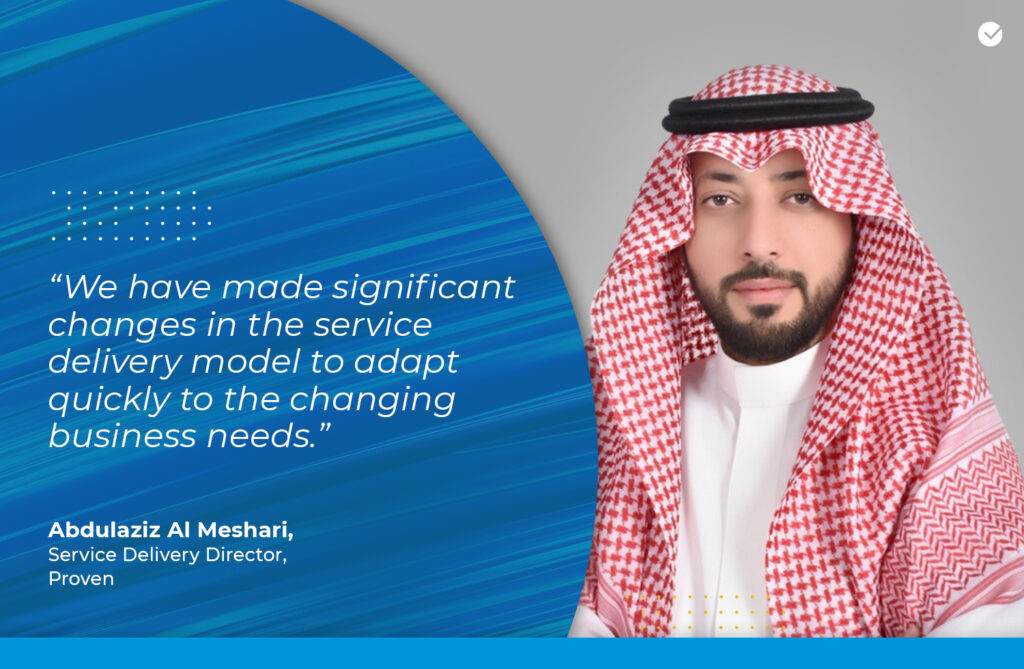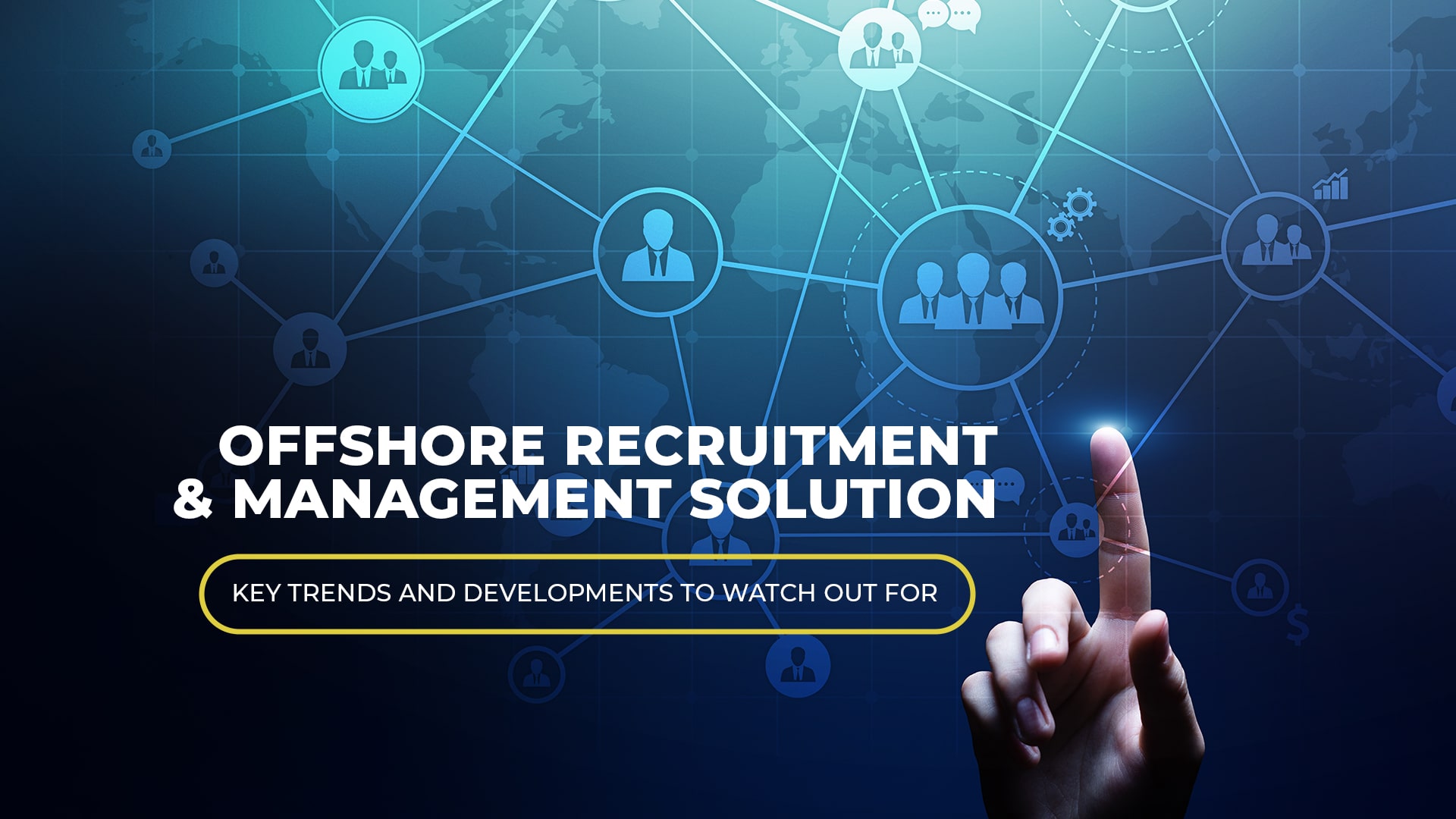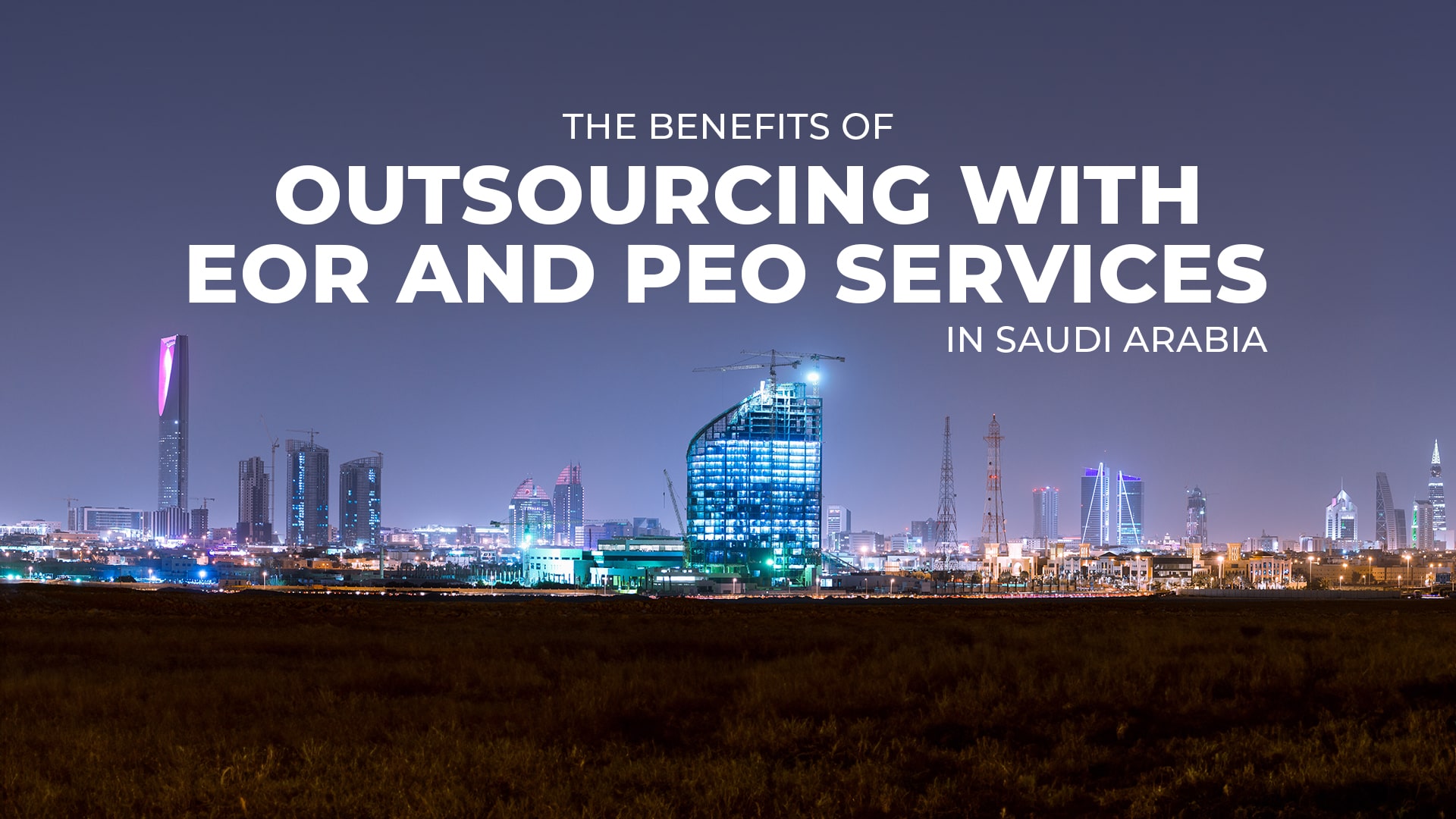COVID-19 has become an epidemic disruptor, affecting customer service and operations all over the globe. Therefore, customer service and support leaders felt the need to develop near- and long-term strategies to counteract possible outcomes. Proven was also grappling with several operational challenges, including maintaining operational continuity, adapting to new ‘norms,’ and assuring quality for essential services during the COVID-19 crisis. To make our operations more efficient and effective, our service delivery team made significant changes to their existing model. So, how did our team manage to alleviate the pressure brought by COVID-19? Proven’s Service Delivery Director shares some insights with us in this one-to-one interview.
“We had to scale up quickly to accommodate the demand growth.”
Question #1: Would you please introduce yourself and your role at Proven?
Abdulaziz: My Name is Abdulaziz Al Mashari, and I have been part of Proven for more than ten years. I started my career at Proven within the government relations, HR, and operations areas and have steadily worked my way up to the current role of Service Delivery Director. Through this journey, I have had a chance to gain exposure to the whole service delivery value chain and attain experience on other related multiple fronts. This allows me to have a very holistic view of the sector that Proven is in and the various factors that influence the industry and our clients. My long tenure has allowed me to deal with a multitude of cases and scenarios, which have greatly helped broaden my skills set and knowledge base. This has provided me with the advantage of being able to look at issues from multiple angles.
As Service Delivery Director, I oversee the service delivery value chain in Saudi Arabia, which includes clients relationship management, advisory, process planning, optimization, capacity management, and service quality assurance.
Question #2: What is a typical day at work according to you?
Abdulaziz: In our line of business, there are a lot of variabilities that come with front-end client management. However, I aim to structure/organize my day to tackle the ad hoc cases and work that comes my way and take a more comprehensive approach required of my role.
Usually, I start my day by clearing through urgent emails before even coming to the office. This lets me catch up on the previous day’s leftover requests and get ahead of some of the current day’s queries. The early part of my day is dedicated to ad-hoc meetings related to daily operations. I usually have inter-department and client meetings from midday onwards and reserve the last two to three hours for focus time, primarily used for planning and work analysis.
Question #3: The expectations of clients vary from each other. How would you make sure that you meet the needs of everyone?
Abdulaziz: I think the real art is managing client expectations. We, at Proven, really put the client’s needs as our ultimate focus. Everything is derived from this on point. Making sure we manage client expectations can be challenging, but at the core, it’s about having open communications with our clients and making sure we work as a partner with them to solve their issues. We have an ongoing regiment to make our service delivery model more flexible to meet each client’s requirements. Our processes are identifying the client needs and subsequent service delivery elements. We then prioritize execution based on the urgency, and the client relationship team manages the expectations around this delivery.
Question #4: As a service delivery director, what was the most challenging thing to you during the COVID time?
Abdulaziz: We had been hard at work creating a distributed team delivery structure well before COVID time. In general, our internal infrastructure was excellent to face the COVID circumstances, especially the communication mechanism and the internal processes for providing services. The most challenging parts that we encountered were adapting to repeated changes in governmental functions that we dealt with and then managing service delivery levels and client expectations. As you can imagine, many of our clients faced unforeseen scenarios and business situations. Quickly adapting to these needs and at the same time increasing our knowledge of the functional elements was most challenging.
Our second challenge came when global mobility and related preventive measures were eased, and business started coming back to normal. There was a sharp surge in the volume of work and clients in a brief period, and we had to scale up quickly to accommodate the demand growth.
Question #5: How did you adjust the Service Delivery Model to the ‘New’ Normal?
Abdulaziz: With the increase in work volume and team members, we have moved towards building teams specializing in each service category. We created functional knowledge hubs around subject matter experts in each service category, along with a similar structure in the front end.
These service delivery model changes helped us consolidate knowledge and experience for each specialty, and we saw the results on the ground post-implementation. This has allowed us to scale up faster and adapt quickly to the changing business and regulatory environment.
Question #2: What is a typical day at work according to you?
Abdulaziz: In our line of business, there are a lot of variabilities that come with front-end client management. However, I aim to structure/organize my day to tackle the ad hoc cases and work that comes my way and take a more comprehensive approach required of my role.
Usually, I start my day by clearing through urgent emails before even coming to the office. This lets me catch up on the previous day’s leftover requests and get ahead of some of the current day’s queries. The early part of my day is dedicated to ad-hoc meetings related to daily operations. I usually have inter-department and client meetings from midday onwards and reserve the last two to three hours for focus time, primarily used for planning and work analysis.
Question #3: The expectations of clients vary from each other. How would you make sure that you meet the needs of everyone?
Abdulaziz: I think the real art is managing client expectations. We, at Proven, really put the client’s needs as our ultimate focus. Everything is derived from this on point. Making sure we manage client expectations can be challenging, but at the core, it’s about having open communications with our clients and making sure we work as a partner with them to solve their issues. We have an ongoing regiment to make our service delivery model more flexible to meet each client’s requirements. Our processes are identifying the client needs and subsequent service delivery elements. We then prioritize execution based on the urgency, and the client relationship team manages the expectations around this delivery.
Question #4: As a service delivery director, what was the most challenging thing to you during the COVID time?
Abdulaziz: We had been hard at work creating a distributed team delivery structure well before COVID time. In general, our internal infrastructure was excellent to face the COVID circumstances, especially the communication mechanism and the internal processes for providing services. The most challenging parts that we encountered were adapting to repeated changes in governmental functions that we dealt with and then managing service delivery levels and client expectations. As you can imagine, many of our clients faced unforeseen scenarios and business situations. Quickly adapting to these needs and at the same time increasing our knowledge of the functional elements was most challenging.
Our second challenge came when global mobility and related preventive measures were eased, and business started coming back to normal. There was a sharp surge in the volume of work and clients in a brief period, and we had to scale up quickly to accommodate the demand growth.
Question #5: How did you adjust the Service Delivery Model to the ‘New’ Normal?
Abdulaziz: With the increase in work volume and team members, we have moved towards building teams specializing in each service category. We created functional knowledge hubs around subject matter experts in each service category, along with a similar structure in the front end.
These service delivery model changes helped us consolidate knowledge and experience for each specialty, and we saw the results on the ground post-implementation. This has allowed us to scale up faster and adapt quickly to the changing business and regulatory environment.









